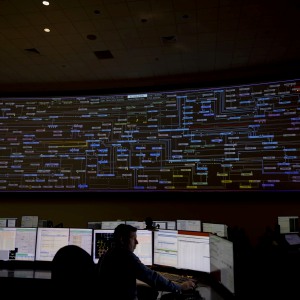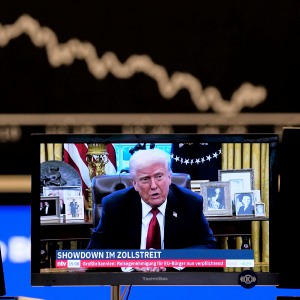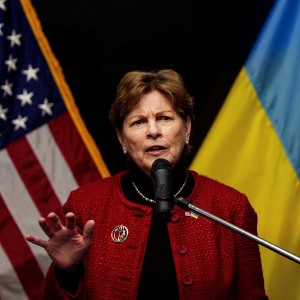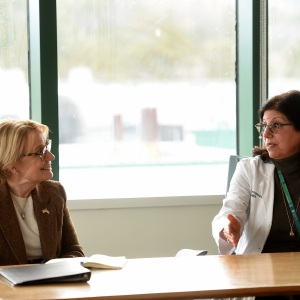Column: Films offer split views of Israel and Palestine
| Published: 03-28-2025 5:51 PM |
I was happy that Hanover’s Nugget Theater showed the Oscar-winning documentary “No Other Land” even though the film hasn’t yet acquired a U.S. distributor.
“No Other Land” gives an intimate view of Palestinians in the occupied West Bank farming communities of Masafar Yatta as they resist Israeli soldiers trying to turn their farms into a military training ground. Not only are the people of Masafar Yatta facing expulsion as Israeli bulldozers destroy their homes, but armed Israeli settlers attack their villages while the soldiers watch. Rather than abandon their homeland, some families move into caves. Throughout, viewers are impressed by the unswerving resilience of the Palestinians in the face of such violence.
“No Other Land” is, remarkably, a collaboration of two Palestinian and two Israeli filmmakers. At the center is the close friendship forged between Yuval Abraham, an Israeli, and Basel Adra, a Palestinian who has filmed Israeli violence since he was a child. The film also portrays the inequities between these friends. Basel, as a Palestinian, cannot leave the West Bank while Yuval, as an Israeli, can come and go as he pleases. The unlikely friendship of these two filmmakers exemplifies the possibility of the Palestinians and Israelis living together in peace.
Unfortunately, the Nugget is screening another film, “October 8,” that denies the bonds between Palestinians and Jewish people seeking shared liberation. “October 8” purports to show the increase of antisemitism in the United States since October 7, 2023. As the film trailer, film website and reviews reveal, “October 8” demonizes the U.S. campus protest movement for Palestine. The filmmakers smear the student encampments as antisemitic without acknowledging that many participants were Jewish. At Columbia University, for example, Jewish students in last spring’s encampment hosted all participants in a Passover meal.
In the news this month, a Jewish student has been expelled from Columbia University for his role in the peaceful protest. Here in the Upper Valley, including on the Dartmouth campus, I never witnessed antisemitic language among protestors. Instead, I stood with many Jewish allies wearing shirts that proclaimed, “Another Jew for Ceasefire.”
“October 8” equates antisemitism with anti-Zionism. But being anti-Zionist means that one is opposed to a Jewish state in which Jews are privileged above everyone else. Anti-Zionism opposes an apartheid system that gives Jews rights denied to Palestinians. Antisemitism, on the other hand, is hatred of Jews for being Jews. Antisemitism is expressed in the dog whistles deployed by the Christian Right, such as scapegoating George Soros or making a Nazi salute.
“October 8” also accuses anti-Zionist Jews of being pro-Hamas. Nothing could be further from reality. Our Jewish values teach us to support equality and human rights for all inhabitants of Palestine/Israel (anti-Zionism) and to oppose a Jewish ethno-state (Zionism). We use nonviolent means to act against Israel’s attempted obliteration of more than 5 million Palestinians in Gaza and the West Bank.
Counterprotestors often use violence to attack demonstrations, such as those who attacked the UCLA encampment, and by authorities ordering police to arrest nonviolent protestors as we witnessed last May 1 on the Dartmouth Green. The armed suppression of protests for Palestine does not make Jews any safer. In fact, it threatens the safety of Jews everywhere.
Article continues after...
Yesterday's Most Read Articles
 Upper Valley residents turn out in droves for protests against federal policies and cuts
Upper Valley residents turn out in droves for protests against federal policies and cuts
 Kenyon: DH CEO asserts decision to close infertility program was ‘thoughtfully evaluated’
Kenyon: DH CEO asserts decision to close infertility program was ‘thoughtfully evaluated’
 A Look Back: Catamount Brewing remembered as ‘a pioneering kind of venture’
A Look Back: Catamount Brewing remembered as ‘a pioneering kind of venture’
 High school soccer: As Grabill heads to Sunapee, Richardson takes over Hanover vacancy
High school soccer: As Grabill heads to Sunapee, Richardson takes over Hanover vacancy
 NH lawmakers want to study the possibility of leaving New England’s electricity system
NH lawmakers want to study the possibility of leaving New England’s electricity system
 ‘The revenue just isn’t there’: House Finance Committee slashes $271M in jobs, services from Ayotte’s budget proposal
‘The revenue just isn’t there’: House Finance Committee slashes $271M in jobs, services from Ayotte’s budget proposal
Consider: “October 8” not only demonizes students speaking up for Palestinian liberation. It also rails against diversity, equity and inclusion (DEI) programs, which, it claims, “hijack students’ minds.” The film serves the white supremacist playbook now muzzling university teaching and threatening the history and rights of people of color, women, trans people and Jewish people alike.
If you choose to watch “October 8,” please also see “No Other Land” and compare them. “October 8” denies the possibility of solidarity between Palestinians and Jews. “No Other Land” portrays the potential for such solidarity. “October 8” conflates political speech with terrorism, adding fuel to the eradication of First Amendment rights on and beyond college campuses. “No Other Land” seeks freedom of expression. It seeks shared and equal rights for an oppressed people, and a just peace that also protects Jewish lives.
Liz Blum is a member of Jewish Voice for Peace VTNH. She lives in Norwich.






 Editorial: Time is running out for American democracy
Editorial: Time is running out for American democracy Editorial: Jeanne Shaheen blazed a trail in politics
Editorial: Jeanne Shaheen blazed a trail in politics Column: Federal funding for medical research puts America first
Column: Federal funding for medical research puts America first Editorial: MLB resumes all-American pursuit of new billions
Editorial: MLB resumes all-American pursuit of new billions
